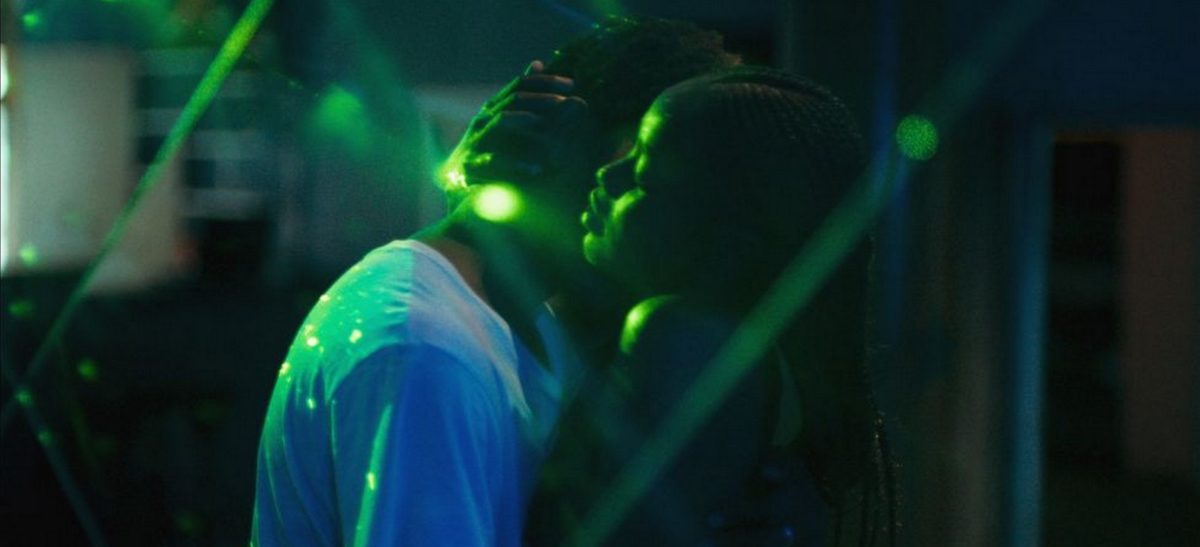Periodically reappearing throughout Mati Diop’s feature film debut Atlantique (2019), the Atlantic Ocean never looks the same, its hue ranging from a silvery white that exhales a sense of mystery, over cyan in the background of a romantic scene, to a darker than dark shade of blue at night. This ever-changing ocean allures young construction worker Souleiman (Ibrahima Traoré), whose work on the Senegalese coast in Dakar has gone unpaid for three months. He and his comrades decide to seek their fortune elsewhere, embarking on a deadly journey across the sea.
The boys’ girlfriends will never see them again—at least not in their own flesh. Their ghosts take over other people’s bodies, turning their eyes white and zombielike. They return to say goodbye to their loved ones and to take revenge on the employer who forced them onto this ill-fated journey. “Every time you’ll look down from the tower, you’ll think of our unburied bodies, at the bottom of the sea”, they warn him.
Even when not visible, the sea is present aurally. The sound of sloshing water makes its way onto the soundtrack, where electronic soundscapes simulate tide-like fluctuations. In concert with these sounds, shrouds of mist and dust, and pallid shades of white, brown, blue and orange give the film a lyrical, mystical and mysterious character.
Much of this mysteriousness is also conveyed through the figure of Souleiman’s secret lover, Ada, who is not allowed to display her innermost feelings, in the face of her arranged marriage with Omar (Babacar Sylla), a rich guy whom she doesn’t love. Portraying Ada, non-professional actress Abdou Baldu delivers a pure, innocent and sober performance. Minimising her display of emotions, she nevertheless knows how to maximise their impact. Small gestures, as when pressing her hand to her chest after she has learned that Souleiman has left, become heart-breaking.
Ada and Souleiman’s separation had already been foreshadowed by a proleptical scene in which a heavily corroded freight passes the ill-omened lovers, both of them on different sides of the tracks. This rusty railway is just one of the many locations exquisitely captured by DOP Claire Mathon. Others include a desolated beach house, the dusty streets of Dakar’s suburbs and a stunningly located beach-front night club. The recurring image of the night club’s disco ball reflecting rays of green lighting on protagonist Ada is one of Atlantique’s most striking and mesmerizing. Like little green insects, small green spots spin across her body, giving us a sense of Ada’s inner whirlwind of emotions (perhaps representing the bitter tears she does not cry) and hinting at a dazzling transformation into the magical.
Atlantique impressively paints a magical realist portrait of loss, anchored in the woeful reality of innumerable people on the African continent, and transforming it into an uncanny and enchanted yet poetical ghost story in which, much like the ocean looming on the horizon, everything flows, and nothing stays the same.
